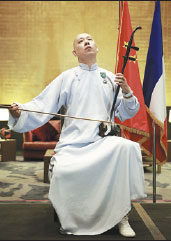Instrument has potential to make lasting impression on the global stage
Updated: 2016-05-04 08:13
By Chen Nan(China Daily USA)
|
|||||||||
The erhu and violin don't have much in common, except that both are stringed instruments and are played using a bow. However, for Chinese erhu player Guo Gan, the similarities between the two instruments don't end there. He says that like the violin, the erhu can be enjoyed by audiences worldwide.
Guo, 48, who started playing the erhu as a 4-year-old in Shenyang, an industrial city in Northeast China's Liaoning province, has so far released over 40 albums as a soloist and a band member in a variety of music genres, such as rock, jazz and classical music.
He has also taken the unfamiliar sounds of the ancient Chinese instrument to nearly 2,000 concerts worldwide, working with hundreds of international musicians, including French jazz violinist Didier Lockwood and Chinese pianist Lang Lang.
On April 25, Guo, who moved to Paris in 2000, was named a Knight of the Order of the Arts and Letters by Maurice Gourdault-Montagne, the French ambassador to China.
The honor, which was created in 1957, has been given to other Chinese artists, including actress Zhang Ziyi and film director Feng Xiaogang. It recognizes those who have distinguished themselves through their work in the artistic or literary domain in France and the world.
Trained by his father, Guo Junming (1940-2010), an erhu musician and educator, Guo Gan says that learning to play the erhu is a family tradition.
"My father told me that the erhu portrays human emotions, especially sadness and loneliness," Guo tells China Daily.
"For me, the instrument is my connection with my father. Whenever I play the erhu, I am having a conversation with my father."
Besides the erhu, Guo also plays Western instruments, such as the violin, the cello and the piano.
"My father never expected me to be like him - an erhu musician," he adds.
"He was very open-minded and supportive of my choices."
By the time Guo graduated from the Shenyang Music Conservatory with a bachelor's degree in percussion performance in 1991, pop and rock music had started to blossom in China.
So, when he taught erhu and percussion at the Liaoning Music Conservatory from 1994-99, he founded his own jazz and rock bands.
"My experiences with forming bands expanded my musical horizons and gave me a different perspective about the erhu," he says. "The instrument can be played in a different way from my father's generation."
In 2000, Guo went to France to study percussion at the National Music School in Paris, where he founded another jazz band, Dragon Jazz, which won the second prize at a European Chinese music competition in Belgium in December 2002.
But despite these successes, he says that there was a time when he tried to escape from the erhu.
"Before I left Shenyang, I didn't even want to carry the instrument with me. But it was my father who told me to take the erhu with me," he says.
After arriving in Europe, Guo began performing at events held by overseas Chinese communities as he struggled to make ends meet like many foreign students.
His first break came in 2002, when he was invited to record music for the movie L'idole by composer Gabriel Yared, who won an Oscar and a Grammy Award for his work on The English Patient.
That collaboration brought Guo more opportunities to record music for other French films.
His latest contribution is for DreamWorks animation Kung Fu Panda 3.
He also made a guest appearance as a soloist at the opening ceremony of the Cannes film festival in 2002.
In 2005, Chinese director Zhang Yimou invited him to play a series of concerts for the promotion of the film, The House of Flying Daggers, in Europe.
"One of the most rewarding parts of joining a new project is meeting different musicians and seeking opportunities for collaboration. I am happy to see that the erhu, which is rarely appreciated in the West, can be used in so many different music styles," says Guo.
"I believe the best way to preserve my father's erhu legacy is to make the sound come alive and adjust it to fit different cultures. I live in a culture different from my native one, which opens me up. I'm willing to accept and confront differences."
While his pianist wife and two children live in Paris, Guo says that he plans to have more shows in China and work with Chinese musicians.
chennan@chinadaily.com.cn
|
Guo Gan plays the erhu at the event while receiving the Knight of the Order of the Arts and Letters. Feng Yongbin / China Daily |
(China Daily USA 04/22/2016 page7)
- Massive protests against Abe mark Japan's Constitution Memorial Day
- Go kitesurfing in Israel
- 500 million people at risk of contracting Zika in Americas: PAHO official
- UN urges DPRK to stop 'further provocative action'
- China stresses Putin's expected visit
- British FM visits Cuba for 1st time since 1959
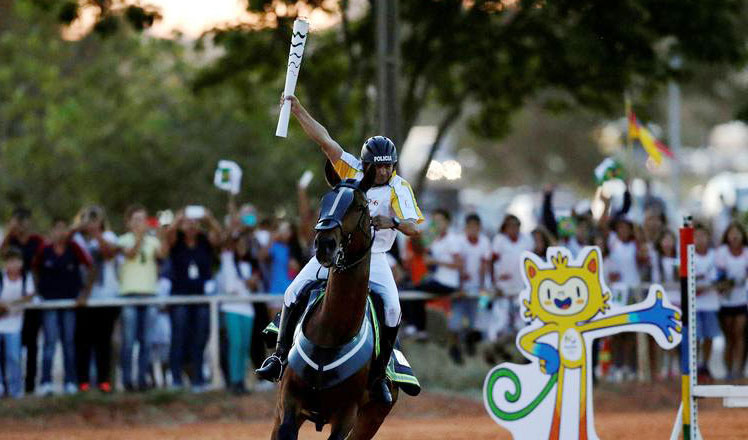
 Olympic flame lands in Brazil for 94-day relay to Games
Olympic flame lands in Brazil for 94-day relay to Games
 Top 10 least affordable cities to rent in
Top 10 least affordable cities to rent in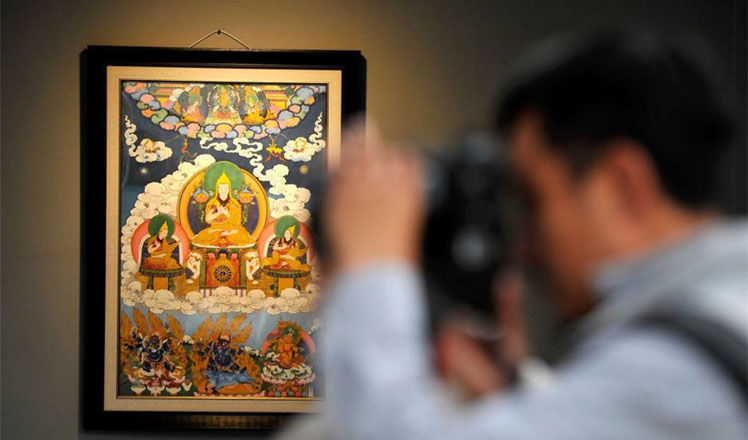
 Exhibition of Tibetan Thangka painting held in Lhasa
Exhibition of Tibetan Thangka painting held in Lhasa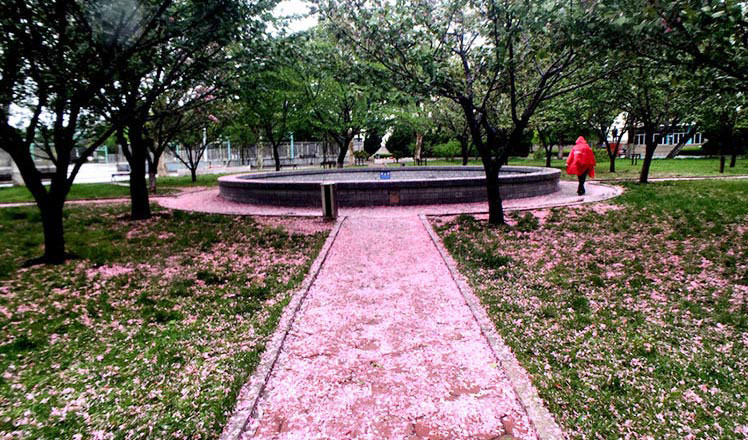
 Storm's aftermath is a pink petal paradise
Storm's aftermath is a pink petal paradise
 Xinjiang-Tibet Highway: Top of the world
Xinjiang-Tibet Highway: Top of the world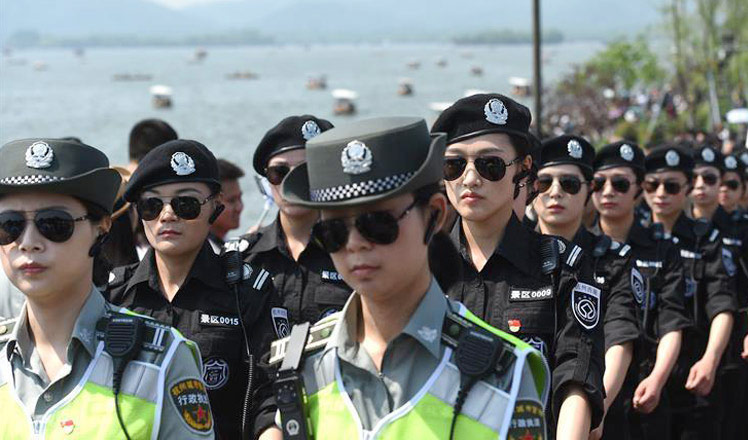
 Female patrol team seen at West Lake in Hangzhou
Female patrol team seen at West Lake in Hangzhou
 Drones monitoring traffic during May Day holiday
Drones monitoring traffic during May Day holiday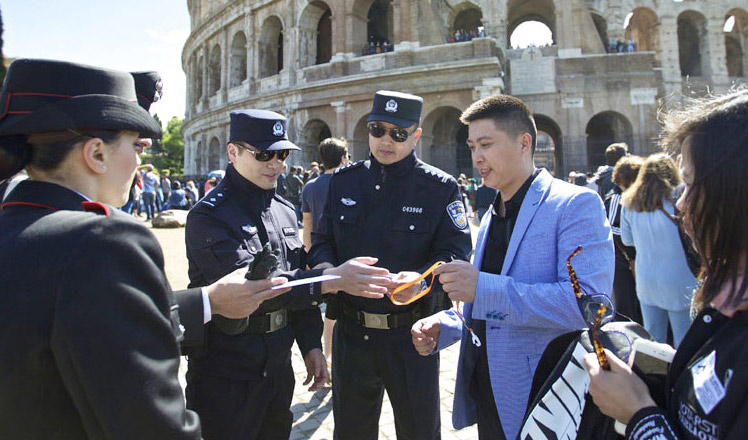
 Sino-Italian police patrols launched in Italy
Sino-Italian police patrols launched in Italy
Most Viewed
Editor's Picks

|

|

|

|

|

|
Today's Top News
Liang avoids jail in shooting death
China's finance minister addresses ratings downgrade
Duke alumni visit Chinese Embassy
Marriott unlikely to top Anbang offer for Starwood: Observers
Chinese biopharma debuts on Nasdaq
What ends Jeb Bush's White House hopes
Investigation for Nicolas's campaign
Will US-ASEAN meeting be good for region?
US Weekly

|

|
